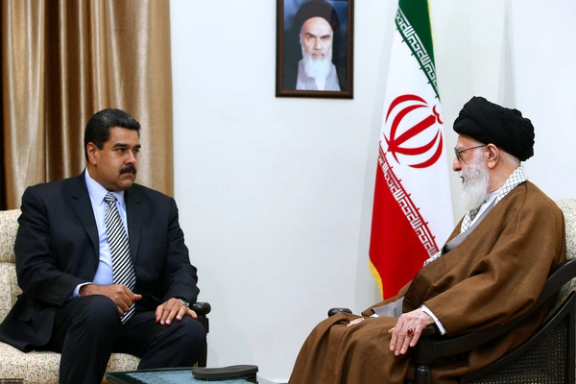US targets Iran–Hezbollah narco network in Venezuela, officials say

US counter-narcotics operations off Venezuela are part of a broader drive to dismantle an Iran- and Hezbollah-linked drug-finance network, officials told Fox News Digital on Sunday.

US counter-narcotics operations off Venezuela are part of a broader drive to dismantle an Iran- and Hezbollah-linked drug-finance network, officials told Fox News Digital on Sunday.
Venezuela’s Tren de Aragua gang works closely with the Cartel of the Suns, a network of military elites long accused of moving cocaine in collaboration with Hezbollah, the report said.
“President Trump has taken numerous actions to curtail Iran’s terrorist proxies like Hezbollah,” State Department spokesperson Anna Kelly said.
“The president has proven that he will hold any terrorist group accountable that threatens the national security of our country by smuggling narcotics intended to kill Americans.”
Hezbollah’s role: laundering and logistics
Brian Townsend, a retired DEA special agent, called last week’s US maritime strike near Venezuela “a decisive blow against narco-terrorists.” He said Hezbollah’s role is pivotal yet often out of view.
“They don’t get their hands dirty. Instead, they launder and provide networks to help cartels send money through the Middle East. Simply, they take a cut from the drug trade, which then funds their operations in the Middle East,” he said, adding that Hezbollah has become “a main finance and money launderer for narco-terrorism groups like Tren de Aragua.”

Townsend and other experts pointed to state complicity as the key enabler. Under Nicolás Maduro and Hugo Chávez, Venezuelan officials and infrastructure have been tied in US indictments and sanctions designations to cocaine shipments protected by senior officers in the Cartel of the Suns, they said, with Hezbollah-linked facilitators processing portions of the proceeds.
Diaspora links and state support
Danny Citrinowicz, a senior fellow at Israel’s Institute for National Security Studies, said Hezbollah’s reach hinges on the region’s Lebanese Shia diaspora. “Hezbollah is the connector between the diaspora and Iran,” he said.
Through family ties, imams, religious centers and educational programs, he added, the group forges contacts with local cartels, sells drugs and channels profits back to Lebanon via elaborate schemes.
Citrinowicz cast Venezuela as Iran’s anchor in the Western Hemisphere, pointing to deepening military and economic ties -- from Iranian-assembled UAV production for the Venezuelan army and regular Quds Force flights via Africa, to training on sanctions evasion and billions in capital injections.
He said Tehran’s footprint is effectively tethered to Nicolás Maduro’s rule and would lose its most important Latin American stronghold if he left office.
“As long as Maduro is there, the Iranians will be there,” he said. “If Maduro goes, Iran will lose the most important stronghold of its activity in Latin America.”
Townsend argued the most effective leverage is financial: target facilitators, disrupt logistics, pursue indictments, and squeeze the money flows so cocaine shipments become less profitable.
“The priority is to attack the financial and logistical networks, indict everyone we can and pressure Maduro,” Townsend said. “If we can cut off the financial arteries, the cocaine won’t be as profitable.”